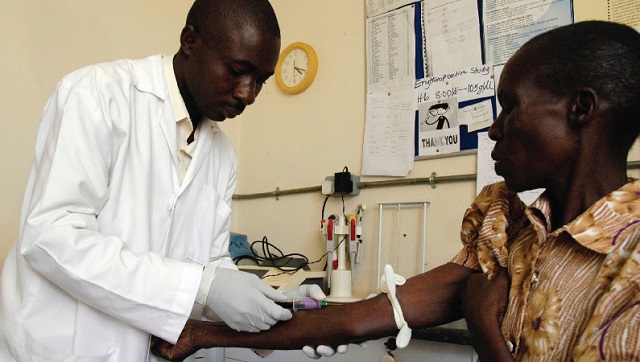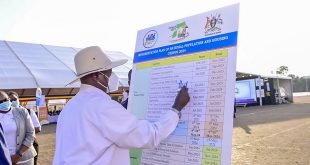
While her findings are exciting, Nakabiito is worried. She says despite Uganda being one of the countries where efficacy of PrEP was established, it cannot be accessed by those in need. Nakabiito says, unlike elsewhere, PrEP in Uganda can only be accessed through demonstration sites.
“We are now exciting people who participated in the Hope study. We aretelling them that they now have a choice but where is that choice?” she said, “They just can’t access these products.”
“There is a time they asked for PrEP we had to run around Kasangati and Infectious Diseases Institute to give it to them,” she adds.
Another researcher, Dr. Francis Kiweewa who heads the ResearchDepartment atMakerere University Walter Reed Project, one of the international sites established by the United States HIV Research Programme in 2002 for aprimary purpose of HIV vaccine development and building of vaccine testing capability in Uganda, says Uganda “is still sleeping when it comes to adoption of PrEP”. He says more than 60 other countries are rapidly enrolling people on medication.
In Uganda, even as the Ministry of Health launched the guidelines for launch of PrEP among key populations in 2016, the number of people who access it is not clear – even in the demonstration sites.
Nakabiito worries that the government’s slowness in rolling out preventative innovations might one day haunt them as researchers.
“People will even start saying we have a hidden agenda to just keep doing research that is never used,” she says, ““We are now researching how effective an injectable drug can be. All these we don’t know when they will be rolled out. Other countries are far ahead.”
The researchers say that if all the 1.3million Ugandans estimated to be living with the virus are enrolled on treatment, the 50,000 annual new infections in the country will be no more. For now, only 73% of those living with the virus are on treatment and not many have achieved undetectable levels of the virus because some skip doses – either because they are negligent or because of treatment stock outs at their clinics.
Also, according to some sources it is only the serodiscordant couples that have more chance of getting PrEP once they go to demonstration sites. Groups like sex workers, other people with multiple sex partners and men who have sex with men are not a prioritised even as prevalence rates are high among these groups.
Nakabiitosays Uganda needs to pick lessons from Kenya whose roll out has been robust. She says the taskforce at the Ministry of Health should at least give out information if they cannot provide the products as yet.
Kenya has enrolled an estimated 25,000 people on PrEP.From initially targeting high risk groups like the serodiscordant couples, the Kenya government has moved into areas of high infection rates; especially young women and adolescent girls.
Kiweewa says it is not just Uganda struggling. Apart from South Africa, African participation in interventions geared towards HIV prevention is still low. He says advocacy work needs to be stepped up. He says even if the biggest epidemic is in South Africa, East Africa still has a big problem and vaccine trials in South Africa might not work in East Africa because the HIV sub typesare different. South Africa has C and Uganda has two sub types A and D.
“If the vaccine studied are proven to work there, we are not exactly sure that they will work here,” he says.
He explains that Uganda participated in one of the five vaccine studies in South Africa whichisbased on theMosaic concept when it was still in early stages. This was designed to work in 95% of circulating HIV clades or subtypes globally. Ugandan researchers now hope these will show efficacy in 2021 when the results are expected.
For him the government should start looking at the lessons they are picking from the challenges that have impeded them from fully enrolling PrEP to prepare for an event the vaccine works. The results of the studies which will determine whether or not we will have a vaccine soon are expected in 2021 and 2022.
For instance he says they are learning from thePrEP demonstration project in Uganda that there are many social issues that hinder implementation of such prevention innovations.
AngelloKatumbaKaggwa of the AIDS Vaccine Advocacy Coalition (AVAC), a global HIV prevention entity, says Uganda’s biggest challenge is policy makers who do not know how to targetinterventions to those who need them most. He says government may need to focus on most at risk groupsbecause resources are scarce.
 The Independent Uganda: You get the Truth we Pay the Price
The Independent Uganda: You get the Truth we Pay the Price


